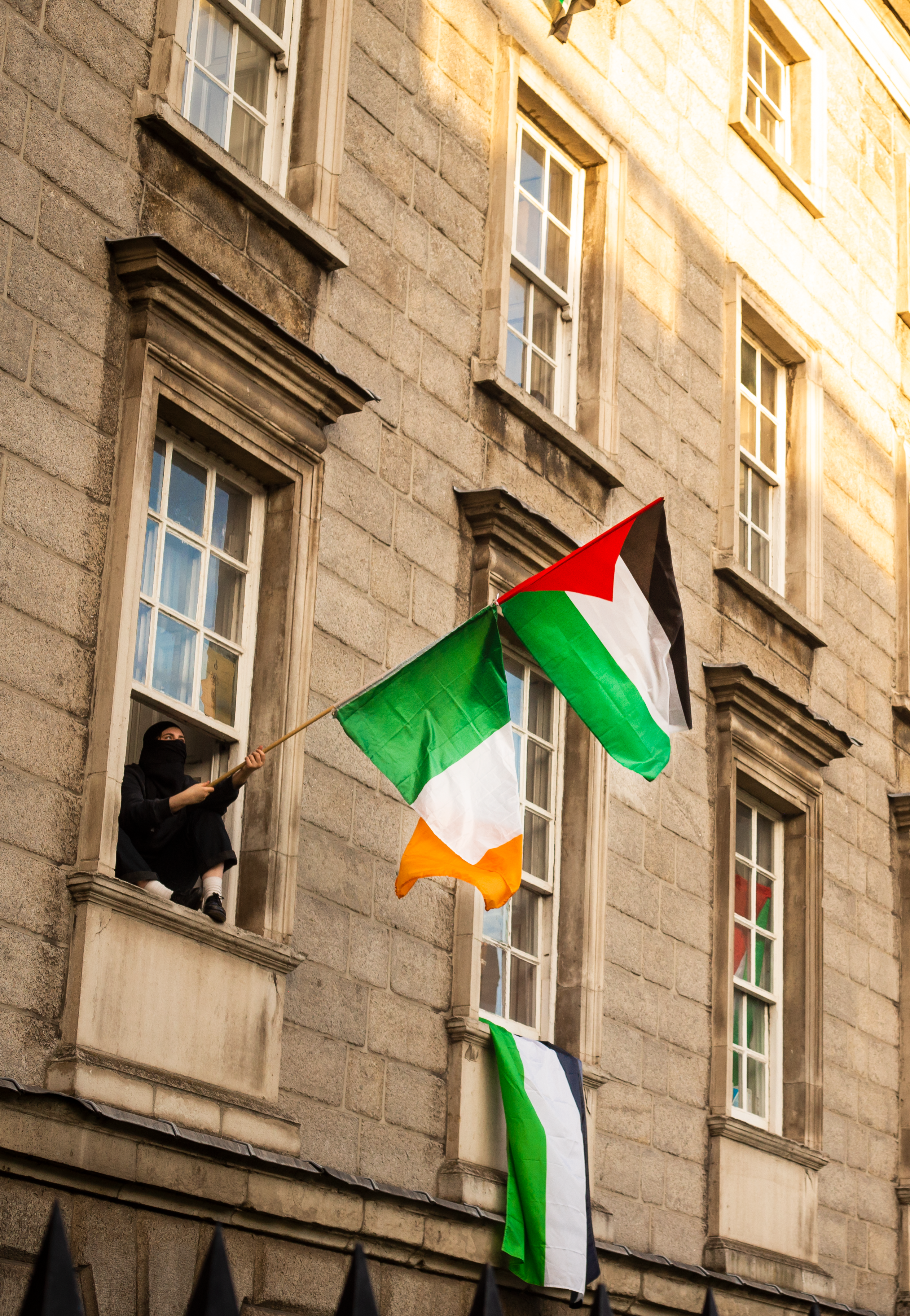On May 7th, the fifth day of the encampment, members of Trinity’s Encampment spoke to The University Times about day to day life at Fellows’ Square, as well as the internal organisation, structures, and events of the activist group.
Eliza, the incoming secretary of Trinity’s Boycott, Divestment, Sanctions (BDS) group, has been at the encampment from the beginning. She tells me: “Every day we are having discussions. We have two meetings everyday minimum, around 10.30am and then a debrief meeting during the evening just to discuss what’s been going on during the day.”
Around the encampment, there are several teams in charge of various duties such as: cooking; medical necessities; speaking to the press; outreach to the public; and dealing with security at the encampment. Duties are rotated regularly to allow the encampment members time to recharge.
Daniel, one of the cooking coordinators, tells me that the “work is all collective” with “around a dozen” helping out with food preparation. He continues that “everyone has been pitching in cooking, with the sharing of kitchens and dishing out of foods”, but cooking for close to 100 people has “definitely been difficult”. The food itself consists of “a lot of soup and a lot of stews. Coming into this week, we’re hoping to get a little bit of support from restaurants providing food”.
He says with a smile that “whenever help is needed and hands are free, people come up and help, which has been lovely”.
The events coordinator at the encampment tells me that there have been two types of events held regularly, “for morale, fun events, and the other area would be more radical thought, study, and just educating ourselves. In terms of education, we had a talk from a Palestinian activist about Palestinian resistance”.
This afternoon, I attended a talk given at the encampment by Helena Sheehan, professor emeritus of media studies at DCU and former chair of the now defunct Graduate Students’ Union at TCD. Approximately fifty students sat on the green, listening to Sheehan speak. Further events scheduled for the day include a Palestinian dance workshop, and a “How to wrap your keffiyeh” practical.
The events coordinator says that “later today we will have an Irish workshop” and that yesterday a calligraphy workshop on the Arabic language took place. They state that “it’s important that we highlight languages like Arabic and Irish, because they have been languages that have been demonised, and connect the struggle between Ireland and Palestine”.
Harieta, a protestor from the beginning of the encampment, tells me that “we want to bring this to other campuses as well” and that “our eyes have been squarely on what we can do to fight for a free Palestine”. They say that for them, taking part in the encampment “for the first time you feel so hopeful” as well as feeling “spiritually destroyed by the genocide in Gaza right now”.
Harieta goes on to speak about the welfare of the encampment members. They say “anytime I ever see someone who looks like they might need a chat, I will always drop anything just to speak to them. That’s the level of solidarity you have. It’s strange in a way when you’re fighting for something that’s so devastating, and so upsetting, for the first time you feel hopeful.”
They say firmly that: “We have a communal duty of care for each other. We need numbers to keep the encampment going, we need support.”
At the encampment, I witnessed song and laughter. The organisers are difficult to pin down, due to the amount of press attention and logistical planning going on, with supporters joining the encampment daily.
Speaking to Harieta, they told me “we will hold this experience with us forever”. They tell me with a laugh that they have not used their purse for days and that “we have removed ourselves from the capitalist status quo”.
The events coordinator echoed this sentiment, stating that the encampment gave them the opportunity to “reimagine ways of living, and to reimagine the future.”
The consensus amongst the supporters I spoke to was that the encampment does not yet have an end date in sight.







